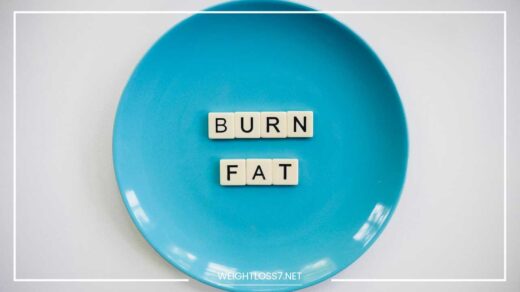Ways to Lose Weight: Reach Your Goals and Keep It Off

Ways to Lose Weight
Shedding Pounds for a Healthier You: Ways to Lose Weight Sustainably
Shedding pounds isn’t just about fitting into your favorite jeans again (although that’s a definite perk!). It’s about embarking on a journey of self-discovery and empowerment.
Weight loss can be a powerful tool for taking charge of your health and well-being, boosting your energy levels, improving your mood, and reducing your risk of chronic diseases like heart disease, type 2 diabetes, and certain cancers.
But navigating the often-confusing world of weight loss advice can be overwhelming. Crash diets, fad workouts, and conflicting information abound.
Don’t worry, we’re here to help! This comprehensive blog post will explore practical, sustainable strategies to help you not only reach your weight loss goals but also cultivate a healthy lifestyle you can maintain for the long haul.
Cultivating the Right Mindset: Embracing a Sustainable Approach
Let’s face it, quick fixes rarely lead to lasting change. Crash diets might lead to initial weight loss, but they’re often unsustainable and can leave you feeling deprived and frustrated.
The key to successful weight loss is adopting a healthy lifestyle that you can integrate seamlessly into your daily routine. Here’s how to cultivate the right mindset for sustainable weight loss:
- Find your WHY: What motivates you to lose weight? Is it improved health, increased energy to keep up with your kids, or simply feeling more confident in your own skin? Having a strong “why” will fuel your commitment during challenging times and help you stay focused on your long-term goals.
- Set SMART goals: Instead of aiming for a vague goal of “losing weight,” set Specific, Measurable, Achievable, Relevant, and Time-bound goals. For example, a SMART goal could be “I will lose 5 pounds in the next 3 months by incorporating 30 minutes of brisk walking into my daily routine and swapping sugary drinks for water.”
- Focus on progress, not perfection: It’s important to remember that weight loss is a journey, not a destination. There will be setbacks – that’s okay! Celebrate your non-scale victories – increased stamina, healthier eating habits, or improved sleep. These milestones are just as important as the number on the scale and indicate you’re moving in the right direction.
Dietary Do’s and Don’ts for Long-Term Weight Management
Food is fuel for your body, and the choices you make on your plate significantly impact your weight loss journey. Here are some dietary tips to keep in mind for long-term weight management:
- Embrace a rainbow on your plate: Fill your meals with a variety of colorful fruits, vegetables, and whole grains. These nutrient-dense foods are low in calories and high in fiber, keeping you feeling fuller for longer and reducing cravings throughout the day.
- Choose lean protein sources as your building blocks: Lean protein helps build and maintain muscle mass, which can boost your metabolism and aid in weight loss. Think skinless chicken breast, fish (especially fatty fish rich in omega-3s like salmon), beans, lentils, and tofu.
- Limit processed foods, sugary drinks, and unhealthy fats: These foods are often high in calories, low in nutrients, and can wreak havoc on your blood sugar levels, leading to increased hunger and cravings. Processed foods are often loaded with added sugars, sodium, and unhealthy fats that contribute to weight gain and other health problems.
Here are some specific strategies to help you limit these unhealthy options:
-
Stay hydrated with water: Water is essential for overall health and plays a crucial role in weight loss. It keeps you hydrated, reduces calorie intake (by filling you up), and can even boost metabolism. Aim for 8 glasses of water per day, adjusting based on your activity level and climate.
-
Practice mindful eating: In today’s fast-paced world, it’s easy to mindlessly eat while distracted by screens or on-the-go. Mindful eating encourages you to slow down, savor your food, and pay attention to your body’s hunger cues. This can help you avoid overeating and make more conscious choices about what you put on your plate. Here are some tips for mindful eating:
- Eat slowly and chew your food thoroughly.
- Turn off screens (TV, phone, computer) while eating.
- Eat in a designated eating area, free from distractions.
- Focus on the taste, texture, and aroma of your food.
- Stop eating when you’re comfortably full, not stuffed.
Finding Fitness: Exercise for Weight Loss and Overall Wellbeing
Exercise plays a crucial role not only in weight loss but also in overall health and well-being. Here’s how to get your body moving and find an exercise routine you’ll enjoy:
- Discover activities you genuinely enjoy: From dancing to swimming, hiking, or team sports, there’s an exercise routine out there for everyone. The key is to find something you’ll look forward to doing and can stick with in the long term.
- Start gradually and progress steadily: If you’re new to exercise, begin with short workouts and gradually increase the duration and intensity as your fitness improves. Listen to your body and take rest days when needed to avoid injury.
- Aim for at least 150 minutes of moderate-intensity exercise or 75 minutes of vigorous-intensity exercise per week: The Centers for Disease Control and Prevention (CDC) recommends at least 150 minutes of moderate-intensity aerobic activity or 75 minutes of vigorous-intensity aerobic activity per week for weight management and overall health benefits. You can break this down into smaller chunks throughout the week, such as 30 minutes most days.
- Incorporate strength training: Building muscle mass not only helps you look toned but also boosts your metabolism, even at rest. Aim for strength training exercises that target all major muscle groups 2-3 times a week. You can use bodyweight exercises, free weights, resistance bands, or weight machines.
Beyond Diet and Exercise: Habits for Sustainable Weight Loss Success
Sustainable weight loss goes beyond just food and exercise. Here are some additional habits to support your weight loss journey and create a healthy lifestyle:
-
Get enough sleep: When you’re sleep-deprived, your body produces more ghrelin (the hunger hormone) and less leptin (the satiety hormone), making you crave unhealthy foods and hindering your weight loss efforts. Aim for 7-8 hours of quality sleep per night. Here are some tips to improve your sleep hygiene:
- Establish a regular sleep schedule and stick to it as much as possible, even on weekends.
- Create a relaxing bedtime routine that helps you wind down before sleep.
- Make sure your bedroom is dark, quiet, and cool.
- Avoid caffeine and alcohol close to bedtime.
-
Manage stress: Chronic stress can lead to weight gain through various mechanisms, including increased cortisol levels (the stress hormone) which can promote fat storage. Find healthy ways to manage stress, such as yoga, meditation, deep breathing exercises, spending time in nature, or listening to calming music.
-
Track your progress: Keeping a food diary or using a weight loss app can help you stay accountable and monitor your progress. Logging your food intake can help you identify areas for improvement and become more mindful of your eating habits. Weight loss apps can offer various features like calorie tracking, exercise logging, progress charts, and motivational tips.
-
Find a support system: Surrounding yourself with positive and supportive people who encourage your weight loss goals can make a big difference. Consider joining a weight loss group, finding a workout buddy, or talking to a friend or family member about your goals. Having a support system can provide encouragement, motivation, and accountability on your journey.
Remember: Weight loss is a personal journey. What works for one person might not work for another. Be patient, experiment with different strategies, and find what works best for you. Don’t be afraid to consult a doctor or registered dietitian for personalized guidance and support. They can help you create a safe and effective weight loss plan tailored to your individual needs and health conditions.
Additional Considerations
- Body Positivity and Self-Compassion: It’s important to remember that weight loss is a journey, and it’s about more than just the number on the scale. Focus on cultivating body positivity and self-compassion throughout your journey. Celebrate your non-scale victories and the positive changes you’re making towards a healthier lifestyle.
- Weight Loss Plateaus: It’s normal to experience weight loss plateaus where the scale seems stuck. Don’t get discouraged! Plateaus can be a sign that your body is adjusting to your new lifestyle. Keep up with your healthy habits, and the weight loss will eventually resume. You may also need to adjust your calorie intake or exercise routine to break through a plateau.
-
Long-Term Maintenance : Losing weight is just the first step.The real challenge is keeping it off in the long term. To achieve this, focus on developing healthy habits that you can integrate into your lifestyle for the long haul. Here are some tips:
- Make healthy eating and regular exercise a way of life, not a temporary fix. Don’t deprive yourself entirely of your favorite foods. Allow yourself occasional indulgences in moderation.
- Find ways to make healthy eating and exercise enjoyable. Explore new healthy recipes, find workout buddies, or join a fitness class you enjoy.
- Be patient and kind to yourself. There will be setbacks along the way. Don’t beat yourself up – learn from them and get back on track.
Final Word
Shedding pounds can be a transformative journey, not just for your physical health but also for your mental well-being and overall confidence.
Remember, it’s not about achieving a certain number on the scale; it’s about taking charge of your health and creating a sustainable lifestyle that allows you to feel your best.
By incorporating the strategies outlined in this blog post, you can embark on a weight loss journey that is both healthy and sustainable.
Additional Resources:
- Centers for Disease Control and Prevention (CDC): https://www.cdc.gov/healthyweight/index.html
- National Institute of Diabetes and Digestive and Kidney Diseases (NIDDK): https://www.niddk.nih.gov/health-information/weight-management/adult-overweight-obesity
- Academy of Nutrition and Dietetics: https://www.eatright.org/
This blog post provides a comprehensive starting point for your weight loss journey. Remember, you are not alone in this. There are many resources available to support you on your path to a healthier you.

















